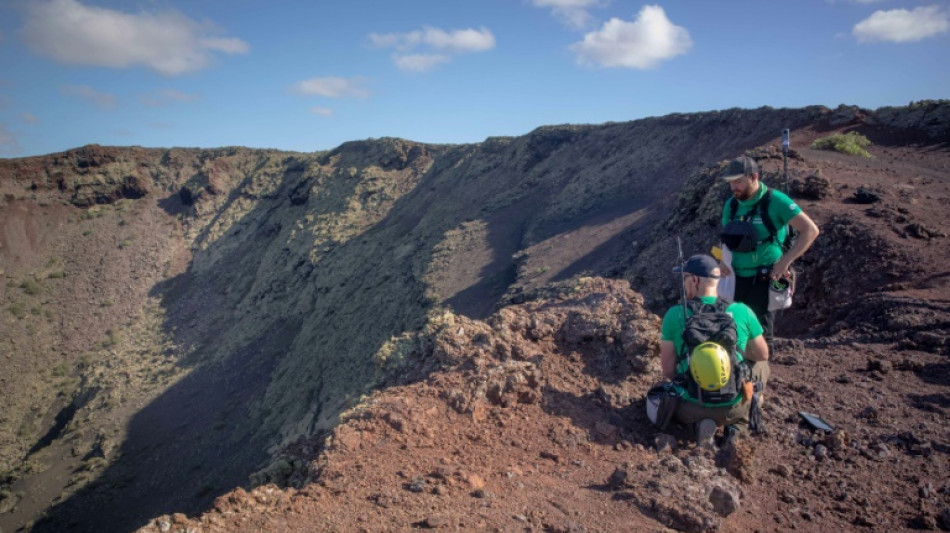
-
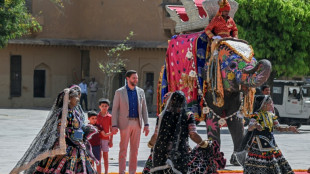 US VP Vance says 'progress' in India trade talks
US VP Vance says 'progress' in India trade talks
-
Ex-England star Youngs to retire from rugby

-
 Black Ferns star Woodman-Wickliffe returning for World Cup
Black Ferns star Woodman-Wickliffe returning for World Cup
-
Kremlin warns against rushing Ukraine talks
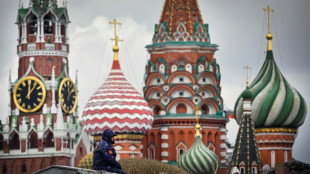
-
 Mbappe aiming for Copa del Rey final return: Ancelotti
Mbappe aiming for Copa del Rey final return: Ancelotti
-
US universities issue letter condemning Trump's 'political interference'

-
 Pope Francis's unfulfilled wish: declaring PNG's first saint
Pope Francis's unfulfilled wish: declaring PNG's first saint
-
Myanmar rebels prepare to hand key city back to junta, China says
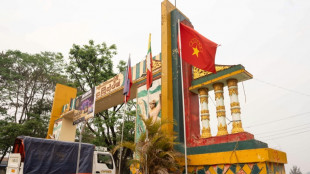
-
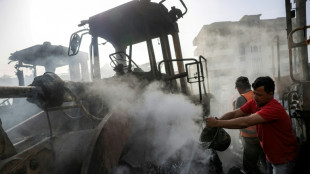 Hamas team heads to Cairo for Gaza talks as Israel strikes kill 26
Hamas team heads to Cairo for Gaza talks as Israel strikes kill 26
-
Pianist to perform London musical marathon

-
 India's Bumrah, Mandhana win top Wisden cricket awards
India's Bumrah, Mandhana win top Wisden cricket awards
-
Zurab Tsereteli, whose monumental works won over Russian elites, dies aged 91
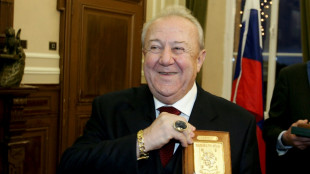
-
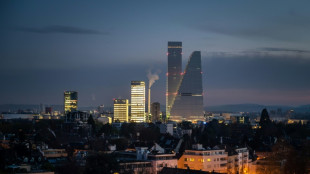 Roche says will invest $50 bn in US, as tariff war uncertainty swells
Roche says will invest $50 bn in US, as tariff war uncertainty swells
-
Pope Francis's funeral set for Saturday, world leaders expected

-
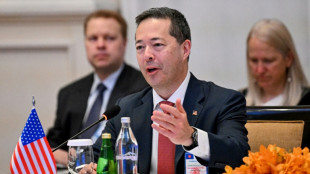 US official asserts Trump's agenda in tariff-hit Southeast Asia
US official asserts Trump's agenda in tariff-hit Southeast Asia
-
World leaders set to attend Francis's funeral as cardinals gather

-
 Gold hits record, stocks mixed as Trump fuels Fed fears
Gold hits record, stocks mixed as Trump fuels Fed fears
-
Roche says will invest $50 bn in US over next five years
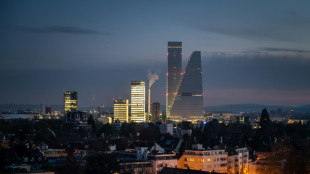
-
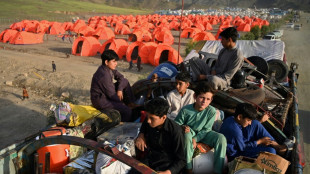 Fleeing Pakistan, Afghans rebuild from nothing
Fleeing Pakistan, Afghans rebuild from nothing
-
US Supreme Court to hear case against LGBTQ books in schools

-
 Pistons snap NBA playoff skid, vintage Leonard leads Clippers
Pistons snap NBA playoff skid, vintage Leonard leads Clippers
-
Migrants mourn pope who fought for their rights
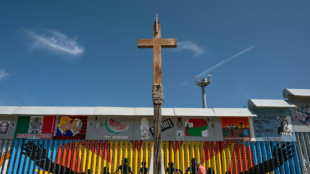
-
 Duplantis kicks off Diamond League amid Johnson-led changing landscape
Duplantis kicks off Diamond League amid Johnson-led changing landscape
-
Taliban change tune towards Afghan heritage sites
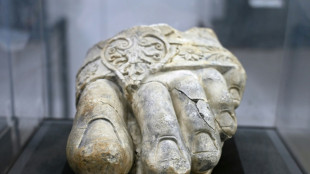
-
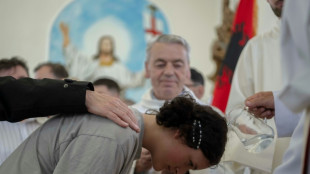 Kosovo's 'hidden Catholics' baptised as Pope Francis mourned
Kosovo's 'hidden Catholics' baptised as Pope Francis mourned
-
Global warming is a security threat and armies must adapt: experts

-
 Can Europe's richest family turn Paris into a city of football rivals?
Can Europe's richest family turn Paris into a city of football rivals?
-
Climate campaigners praise a cool pope

-
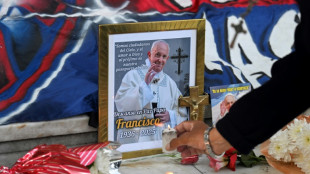 As world mourns, cardinals prepare pope's funeral
As world mourns, cardinals prepare pope's funeral
-
US to impose new duties on solar imports from Southeast Asia

-
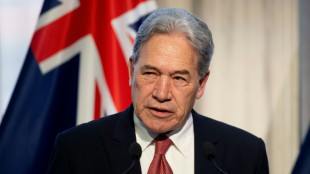 Draft NZ law seeks 'biological' definition of man, woman
Draft NZ law seeks 'biological' definition of man, woman
-
Auto Shanghai to showcase electric competition at sector's new frontier

-
 Tentative tree planting 'decades overdue' in sweltering Athens
Tentative tree planting 'decades overdue' in sweltering Athens
-
Indonesia food plan risks 'world's largest' deforestation
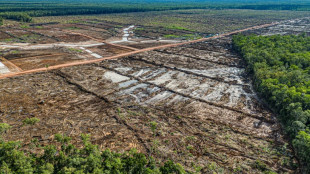
-
 Gold hits record, stocks slip as Trump fuels Fed fears
Gold hits record, stocks slip as Trump fuels Fed fears
-
Trump helps enflame anti-LGBTQ feeling from Hungary to Romania
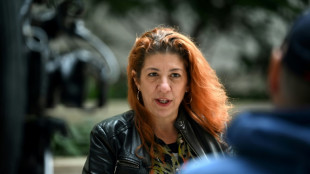
-
 Woe is the pinata, a casualty of Trump trade war
Woe is the pinata, a casualty of Trump trade war
-
'Like orphans': Argentina mourns loss of papal son

-
 Trump tariffs torch chances of meeting with China's Xi
Trump tariffs torch chances of meeting with China's Xi
-
X rival Bluesky adds blue checks for trusted accounts

-
 China to launch new crewed mission into space this week
China to launch new crewed mission into space this week
-
Morocco volunteers on Sahara clean-up mission

-
 Latin America fondly farewells its first pontiff
Latin America fondly farewells its first pontiff
-
'I wanted it to work': Ukrainians disappointed by Easter truce

-
 Harvard sues Trump over US federal funding cuts
Harvard sues Trump over US federal funding cuts
-
2025 U.S. Open Polo Championship Final Concludes American High-Goal Season, Supported by U.S. Polo Assn.

-
 'One isn't born a saint': School nuns remember Pope Francis as a boy
'One isn't born a saint': School nuns remember Pope Francis as a boy
-
Battling Forest see off Spurs to boost Champions League hopes

-
 'I don't miss tennis' says Nadal
'I don't miss tennis' says Nadal
-
Biles 'not so sure' about competing at Los Angeles Olympics


'Like the Moon': Astronauts flock to Spanish isle to train
Kneeling on the edge of a deep crater, astronaut Alexander Gerst uses a chisel to collect a sample of volcanic rock which he carefully puts inside a white plastic bag.
Gerst is not on the Moon, even if it looks like it. He is in the middle of Los Volcanes Natural Park on the island of Lanzarote in Spain's Canary Islands, off the northwest coast of Africa.
With its blackened lava fields, craters and volcanic tubes, Lanzarote's geology can be uncannily similar to that of the Moon and Mars -- so much so that the European Space Agency (ESA) and NASA have for years been sending astronauts to the island to train.
"This place has lavas that are very, very similar to the ones that we find on the Moon," Gerst, a 46-year-old German astronaut with the ESA, told AFP.
He said the island was "a unique training ground".
Gerst, who has completed two missions on the International Space Station, is one of about a dozen astronauts who have taken part in the ESA's Pangaea training course in Lanzarote over the past decade.
Named after the ancient supercontinent, Pangaea seeks to give astronauts as well as space engineers and geologists the skills needed for expeditions to other planets.
Trainees learn how to identify rock samples and collect them, do on-the-spot DNA analysis of microorganisms, and communicate their findings back to mission control.
"Here, they are put into the field to experience the exploration of a terrain, which is something they will have to do on the Moon," said Francesco Sauro, the technical director of the course.
- Six-year eruption -
Gerst said the Pangaea training course, which he has just completed, helps prepare astronauts to work in a remote setting on their own.
"If we run into a problem, we have to solve it ourselves," he said.
He completed the Pangaea training along with Stephanie Wilson, one of NASA's most senior astronauts. Both are possible candidates for NASA's next crewed Moon missions.
Named for the goddess who was Apollo's twin sister in ancient Greek mythology, NASA's Artemis programme aims to return astronauts to the Moon's surface as early as 2025, though many experts believe that time frame might slip.
Twelve astronauts walked on the Moon during six Apollo missions from 1969 to 1972, the only spaceflights yet to place humans on the lunar surface.
NASA and the ESA also regularly use Lanzarote's landscape of twisted mounds of solidified lava to test Mars Rovers -- remote controlled vehicles designed to travel on the surface of the Red Planet.
Lanzarote's unique geography stems from a volcanic eruption that began in 1730 and lasted six years, spewing ash and lava over large swathes of land.
Considered one of the greatest volcanic cataclysms in recorded history, the eruption devastated over 200 square kilometres (77 square miles) of terrain -- about a quarter of the island which is currently home to around 156,000 people.
- 'See far away' -
While there are other volcanic areas such as Hawaii that could also be used for astronaut training, Lanzarote has the advantage that it has little vegetation due to its desert-like climate.
"You have a lot of different types of volcanic rocks in Lanzarote. And they are exposed. You don't have trees," said Pangaea project leader Loredana Bessone.
"You can see far away, as if you were on the Moon," she told AFP.
The Canary Islands is making a big contribution to space exploration in another way too. The island of La Palma is home to one of the world's largest optical telescopes.
Located on a peak, the Great Canary Telescope is able to spot some of the faintest, most distant objects in the Universe.
La Palma was selected as the site for the telescope because of its cloud-free skies and relatively low light pollution.
O.Krause--BTB


